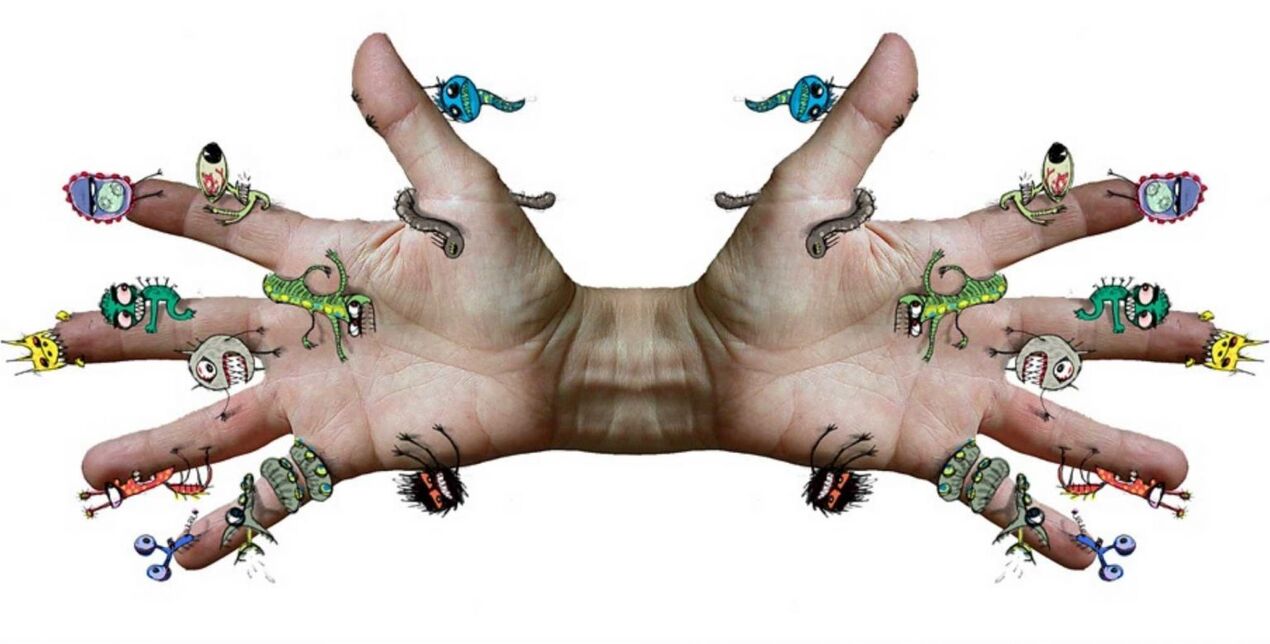People consume foodstuffs to replenish energy reserves expended in the process of active life. But you can imagine that a person often becomes an excellent target for the simplest living organisms. Uninvited "tenants" can use the landlord for a long time as a living container, providing food, shelter, and comfortable conditions. If the parasites have settled in the human body, the symptoms of infection can easily be mistaken for signs of certain diseases, such as colds, gastritis, pneumonia, etc.
The most common symptoms of parasitosis
Parasitic life forms exist and develop at the expense of a person, while irreparable damage is done to his health, because most of the nutrients and vitamins go to the "occupant" who modestly lurks in one of the internal organs: intestines, lungs. , heart, liver, joints, etc. etc. The destructive effect depends on the length of stay and the "appetite" of the migrant; Parasitosis is believed to be the root cause of diseases such as diabetes mellitus, pancreatitis, bronchial asthma, cholecystitis, and atopic dermatitis.

Symptoms of the presence of parasites in the human body:
- gastrointestinal tract disorders (constipation, flatulence, diarrhea, irritable bowel syndrome, localized pain in the stomach);
- endocrine system disorders (weight fluctuations, underweight or overweight, hormonal imbalance);
- dental diseases (stomatitis, periodontal disease);
- problems associated with the work of the musculoskeletal system (pain in the joints, muscles - arthrosis, arthritis);
- neurological disorders (irritability, insomnia, anxiety without cause, depressive states);
- allergic reactions and related skin problems (elevated levels of eosinophils, immunoglobulin E, allergic rhinitis, eczema, hives, papillomas, dermatitis);
- respiratory diseases (bronchial asthma, pneumonia);
- violation of hematopoiesis, decreased vascular permeability, anemia (critical decrease in hemoglobin);
- chronic fatigue and decreased immunity (frequent mild ARVI, tonsillitis, listlessness, low blood pressure, weakness, and poor memory);
- oncological diseases;
- aesthetic problems (cracked heels, dry skin, brittle nails, discolored hair, seborrhea, baldness);
- gynecological and urological diseases (in women: menstrual irregularities, discharge, vaginal candidiasis, fibroids, mastopathy; and in men: prostatitis, urolithiasis);
- bruxism (teeth grinding), snoring.
Even knowing the signs of the presence of parasites in the human body, it is difficult to diagnose parasitosis without a complete examination (scraping three times and blood tests). Symptoms of parasitic invasion are a consequence of the vigorous activity of the "host", when a person suffers intoxication with helminth waste products, chronic irritation of the affected organs and the immune system can no longer cope with the disease. itself.

Features of the course of parasitosis in children
Children, unlike adults, are more likely to encounter parasite infestations in everyday life. Infection usually occurs during a walk (after contact with sand or soil), as a result of close contact with sick animals, or from swimming in an open body of water. Usually the signs of parasites in children are difficult to determine, primary infection and colonization of helminths occurs imperceptibly. Gradually, the amount of toxins in the blood increases, the child's body is poisoned with the waste products of the helminth, which manifests itself in the form of decreased immunity and permanent diseases, allergies of unknown etiology, dysbiosis and physical exhaustion .
The following indirect symptoms of parasites can be distinguished in children:
- lack of appetite or, conversely, gluttony, passion for sweets;
- regular headaches accompanied by nausea;
- rapid emerging fatigue;
- lack of daily bowel movements (constipation);
- vomiting, belching, bad breath;
- pale skin, "blue" under eyes;
- irritability, aggressiveness, whims;
- hyperactivity, especially at night;
- bad (intermittent) night sleep, associated with restlessness, moaning, bruxism;
- irritation or redness in the genital area.
Symptoms of infection with protozoan parasites should be used as a "beacon" for a comprehensive examination. A timely and professional diagnosis allows you to completely cure the parasitic infestation with minimal damage to the health of the body.






































